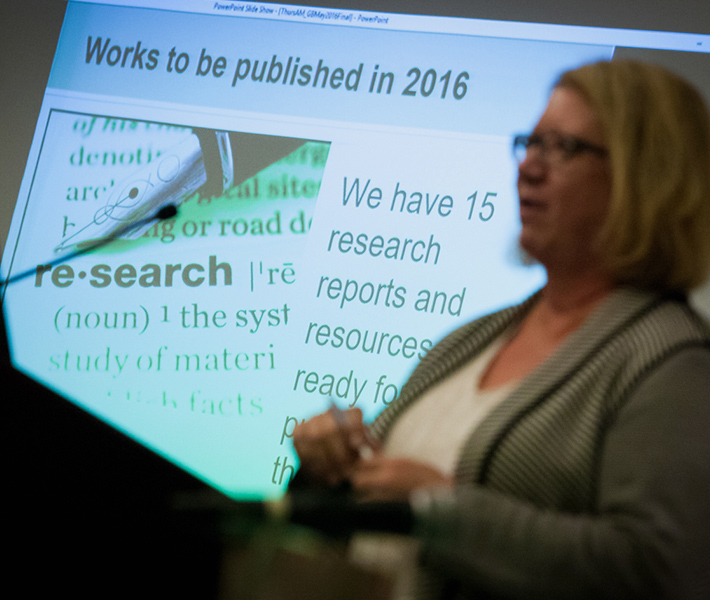Capacity Building for Individuals, Organizations, and Systems Putting Theory into Practice
“At the REL, we bring the methodological understanding needed to conduct rigorous research, as well as an appreciation for the realities of educational practice. That’s how you move education forward.”
For a decade, the Regional Educational Laboratory Northeast and Islands (REL-NEI) at EDC has produced high-quality research reports about some of the most pressing issues in U.S. education. This research has been critical to identifying policies and programs that improve student outcomes.
In 2015, REL-NEI research continued to help state education officials make evidence-based decisions. When policymakers in Connecticut wanted to improve outcomes for English learners (ELs), REL-NEI helped the state identify correlations between schools, EL programs, and students’ scores on English language proficiency assessments. This research prompted education officials to think about the EL services being offered in the district and led to recommendations for revisions to the state’s guidelines.
Likewise, when New Hampshire’s Department of Education sought to examine state implementation of teacher evaluation, they turned to REL-NEI, who conducted a 15-school research study and also provided extensive technical assistance to help policymakers and administrators understand the findings. REL-NEI’s work was key in the development and rollout of teacher evaluation systems across the state—including in one of New Hampshire’s largest school districts.
“The work that the REL did in Manchester completely elevated the thinking in that city about education,” says Virginia Barry, NH Commissioner of Education.
FY 2015
Key Project Milestones
- Authors 11 research reports published by the Institute of Education Sciences on key issues in education, including competency-based learning, online course use, Common Core, and teacher evaluation
- Publishes a toolkit to help teachers and administrators use education data to support instructional planning at the school level
- Helps the U.S. Virgin Islands and Puerto Rico develop data catalogues, enabling them to lay the groundwork for programmatic improvements based on student outcomes
- Studies the alignment of teacher evaluations to professional development recommendations and participation in one urban district
- Defines challenges faced by the region’s math educators in implementing the Common Core and published a report identifying high-quality, online resources to support instruction
- Becomes the only REL to launch an online professional development center, attracting 700 registrants nationwide to certificate-bearing courses on data use and program evaluation
- Hosts more than 30 research alliance events, conducts 28 workshops, and leads 10 research-to-practice sessions that attracted 3,124 educators and researchers
